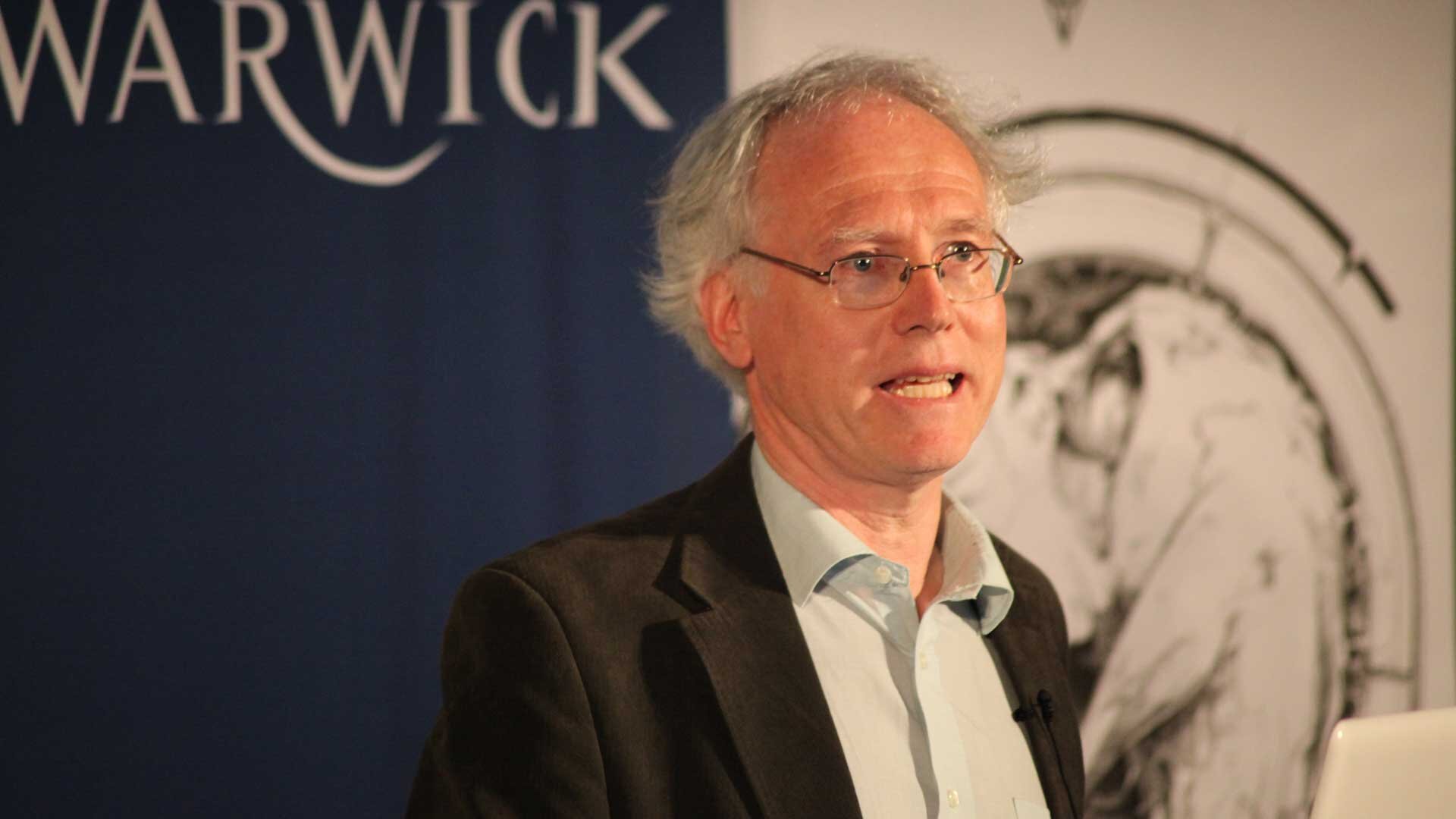Health Futures: Real or Virtual?
Professor Jeremy Wyatt, Director of the Institute for Digital Health Care at WMG, recently spoke at Virtual Futures 2.0’11. Professor Wyatt’s talk centered on recent advancements in health technology and how this may impact on our medical experiences. But what are the challenges of digital healthcare? Will we soon be seeing a world where our cyber-doctor takes our blood pressure? Are there drawbacks to having a system that relies fully on recently developed technology?
Imagine the scenario – you wake up with a headache. You check your ambient orb (a glass lamp that monitors data), which is glowing green. You turn to your video wall and ask your cyber-doctor: ‘How has my blood pressure been recently?’ Your cyber-doctor replies that your blood pressure has been stable, but the supply in your implanted drug reservoir is getting low. You ask to be reminded when it needs refilling. To be on the safe side, you also ask your cyber-doctor to check the medical symptoms of people locally, to see if there’s a virus going around.
This might seem a futuristic vision, says Professor Jeremy Wyatt – Director of the Institute for Digital Health Care at WMG – but in fact all of this technology is available now. It just hasn’t been put together yet.
But what are the challenges of digital healthcare? Is it feasible to implement technologies such as these in a self-guided healthcare system, and how could they improve on traditional techniques?
“Your cyber-doctor replies that your blood pressure has been stable, but the supply in your implanted drug reservoir is getting low.”
Professor Wyatt begins by outlining some of the challenges facing the medical profession today. Set up in 1948, the focus of the NHS has always been on people who are seriously ill, rather than those who are suffering from long-term conditions. It is a large burden on the taxpayer; it can be hard for people to navigate the system; the efficacy of healthcare across the UK – in terms of reaching people in remote areas – is patchy; the NHS itself is a significant cause of morbidity though hospital infections.
We also need to consider the ‘demographic time-bomb’ (i.e., increasing numbers of people are living well beyond the age of 65, whereas the numbers of people going into the healthcare profession are decreasing). Add to this the pressure of new infectious diseases, the mental health consequences of social isolation and environmental concerns such as global warming and there’s a compelling case for harnessing new technologies in public health.
Technology can empower people, believes Professor Wyatt, and we need to shift towards a new model in which the patient is treated as a partner in their medical care: perhaps even the person who drives it. There are a variety of devices that can be used in this process. There are implants; the ambient orb (which came out of the Media Lab of MIT); tools to help people remember to take their pills; virtual reality applications and crowd-sourcing applications where you record your data and medicines and compare yourself to other people suffering from the same illness.
As a visiting professor in Medical Informatics in Amsterdam, the Professor worked with a PhD student to put together a website dedicated to skin problems: ‘photographs and other information [were] sent off to a remote dermatologist and in the trial we discovered that nearly a third of referrals to the hospital could be prevented,’ he says. This makes healthcare more responsive: you don’t need to take a day’s holiday or show up at the surgery, and you can deliver help anywhere: even on a mobile phone. There is perhaps the potential to save the NHS billions of pounds.
But what about clinical examinations, ask Professor Wyatt, where the doctor puts their hand on your stomach and feels the liver? The technologist would say that you could have a kiosk in which examinations are directed by a remote doctor – perhaps this could even extend to surgery. ‘Potentially there could be kiosks in the back of the supermarket where you go, lock the door, and this machine carries out some of those procedures,’ says the Professor.
“Do you remember the great revulsion around genetically modified foods?”
Yet there are some drawbacks to digital healthcare that need careful consideration. The Professor describes a study with NHS Direct, where patients were given the option of using an instant messaging system when talking to healthcare professionals; the patients loved it, but the nurses said it took far too long to build rapport with the patient. There are other considerations such as cost and professional mistrust in data collection; the public’s safety must be taken into account, along with personal privacy. There needs to be equity of access, and there are issues of acceptability and trust amongst people who are vulnerable.
‘Do you remember the great revulsion around genetically modified foods?’ asks Professor Wyatt, ‘As a result they’re scarcely available, and it’s just possible that there may be a mass uprising against virtual healthcare.’ It’s important that we don’t underestimate people’s difficulties with this very scientific, technocratic, approach to healthcare, he adds. ‘There’s a huge pressure of technology, and in some ways, that’s good, but we’ve got to be sure it actually works.’
Biography
Professor Jeremy Wyatt is Director of the new Institute for Digital Health Care, professor of eHealth Innovation in Warwick University and visiting professor in Medical Informatics in Amsterdam and Porto. His research explores the use of evidence and new models of care to innovate in clinical practice and self care, and evaluating the impact of this. He was the first UK Fellow elected by the American College of Medical Informatics and is the third most cited researcher in his field worldwide with an H index of 24. He trained as a physician in Oxford and London then in medical informatics and clinical epidemiology in London, Stanford and Amsterdam; he still sees patients in a diabetes clinic. Jeremy enjoys demystifying health informatics and has written article series for the Lancet, BMJ and JRSM, the ABC of Health Informatics (Blackwells, 2006) and a handbook on clinical knowledge in practice (RSM Press, 2001).
Acknowledgements
Reproduced with the permission of the Knowledge Centre, University of Warwick
Follow Dr. Annette Rubery on Twitter @AnnetteRubery
Photography by Andy Miah

